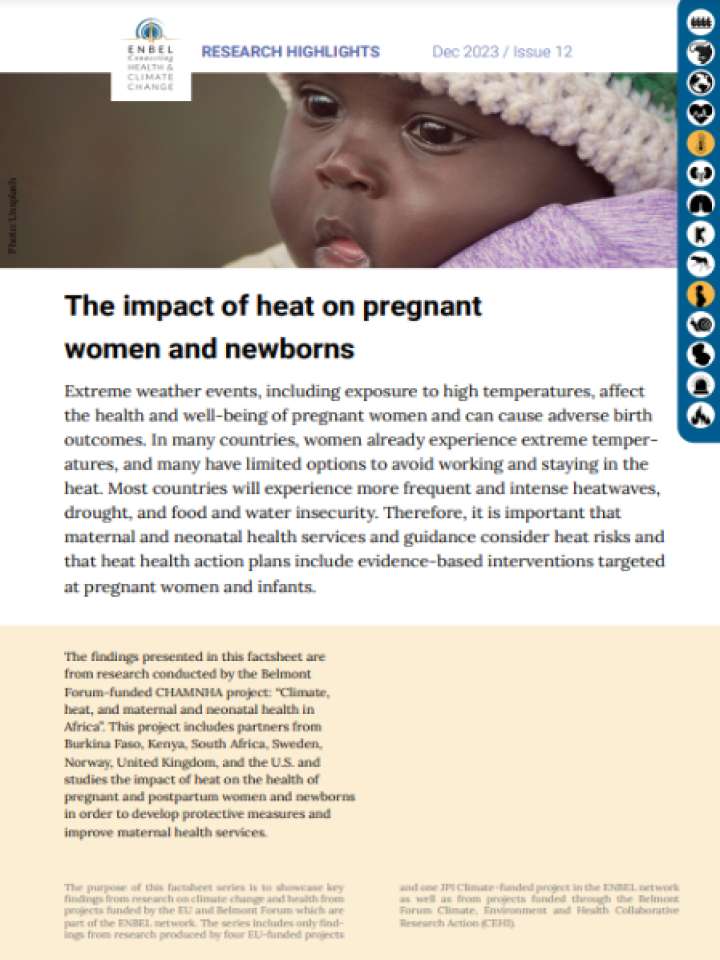The impact of heat on pregnant women and newborns
Extreme weather events, including exposure to high temperatures, affect the health and well-being of pregnant women and can cause adverse birth outcomes. In many countries, women already experience extreme temperatures, and many have limited options to avoid working and staying in the heat. Most countries will experience more frequent and intense heatwaves, drought, and food and water insecurity. Therefore, it is important that maternal and neonatal health services and guidance consider heat risks and that heat health action plans include evidence-based interventions targeted at pregnant women and infants.
The key findings presented in this factsheet are from research conducted by the Belmont Forum-funded CHAMNHA project: “Climate, heat, and maternal and neonatal health in Africa”. This project includes partners from Burkina Faso, Kenya, South Africa, Sweden, Norway, United Kingdom, and the U.S. and studies the impact of heat on the health of pregnant and postpartum women and newborns in order to develop protective measures and improve maternal health services.
Explore further
